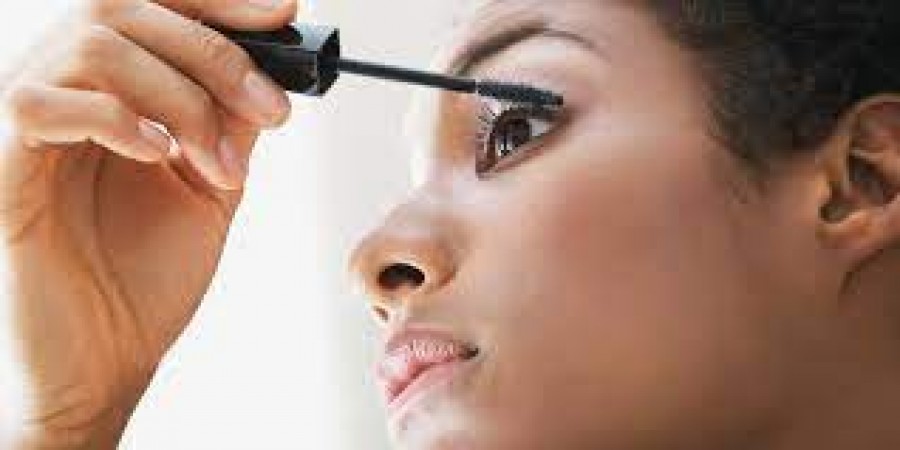
Have you ever experienced that annoying itching sensation right after applying makeup? The culprit might not be as obvious as you think. Let's delve into the intricacies of this beauty woe and explore why your skin might be rebelling against your makeup routine.
The skin, our body's largest organ, often communicates its discomfort through various sensations. Itching, in particular, can be a signal that something isn't quite right. When it comes to makeup, a myriad of factors can contribute to this unwelcome itchiness, starting with the very foundation of your beauty routine.
Your foundation, the base of your makeup, can be a double-edged sword. While it aims to create a flawless canvas, certain ingredients might be triggering allergic responses leading to persistent itching.
To uncover the root cause, it's crucial to scrutinize the ingredients list. Common culprits include fragrances, preservatives, and certain pigments. Identifying these hidden enemies can be the key to preventing post-makeup itching.
While oil-based foundations provide a dewy finish, they might not be the best choice for everyone. The richness of these formulas can lead to clogged pores and exacerbate itching, especially for those with sensitive or acne-prone skin.
Moving up to the eyes, the use of mascara and eyeliner can also contribute to post-makeup itching. Delving into the specifics of these products can reveal whether they are friends or foes to your delicate eye area.
Eyeliner, a staple in many makeup routines, can harbor ingredients that might irritate your eyes. Identifying and avoiding potential irritants can make a significant difference in your comfort level.
Mascara, designed to enhance lashes, can sometimes lead to unintended consequences. The ingredients in mascara, such as certain pigments and preservatives, might be causing irritation. Ensuring the health of your lashes involves understanding the impact of your chosen mascara.
Moving to the lips, your favorite lipstick might be the source of discomfort. Investigating the ingredients and longevity of your chosen lip color can reveal whether your lips are in need of a break.
Lipsticks often contain a variety of ingredients to achieve desired textures and colors. However, some individuals may be sensitive to certain dyes, fragrances, or preservatives present in these products. Identifying and avoiding these potential aggressors can be crucial for preventing post-lipstick itching.
The trend of long-wear lipsticks has taken the beauty world by storm. However, the longevity of these lip colors might come at a price. Ingredients used to make these lipsticks last longer on your lips can sometimes lead to dryness and itching. Balancing beauty and comfort is the key to a happy lip routine.
While makeup brushes and tools are essential for a flawless application, they might also be contributing to post-makeup itching. Examining the hygiene and materials of your brushes can shed light on whether your tools are helping or hindering your skin's well-being.
The importance of clean brushes cannot be overstated. Dirty brushes can harbor bacteria, allergens, and old makeup residues that might transfer onto your skin, triggering itching and other skin issues. Regularly cleaning your brushes is a simple yet effective step towards maintaining healthy skin.
The materials used in your makeup brushes can also play a role in skin sensitivity. Some individuals may find natural bristles more irritating, while others might be sensitive to synthetic fibers. Understanding the impact of different brush materials can help you make informed choices for a more comfortable makeup application.
Sometimes, the itching might not be directly linked to makeup products. Uncommon culprits, such as hidden allergens and environmental factors, can contribute to post-makeup discomfort.
Allergic reactions might not always be tied to makeup ingredients. Environmental allergens, such as pollen or dust, can interact with your makeup and cause itching. Identifying these external triggers can be challenging but is essential for effective prevention.
Environmental factors, including temperature, humidity, and pollution, can influence how your skin reacts to makeup. Understanding the impact of these factors can help you adapt your beauty routine to minimize post-makeup itching.
Having identified the potential culprits, it's time to explore ways to soothe post-makeup itching and make your beauty routine a more pleasant experience.
The way you remove your makeup matters. Harsh removal techniques can aggravate the skin and contribute to itching. Opt for gentle methods, such as micellar water or oil-based cleansers, to effectively remove makeup without causing irritation.
Crafting a post-makeup skincare routine tailored to your skin's needs is crucial. This routine should include hydrating and soothing products to counteract any potential irritation caused by makeup. Choosing skincare products with calming ingredients, such as aloe vera or chamomile, can contribute to a more comfortable post-makeup experience.
In the pursuit of beauty, your skin's comfort should never be compromised. Unearth the reasons behind post-makeup itching and take control of your beauty regimen. By understanding the specific triggers and making informed choices, you can ensure that your makeup routine enhances your beauty without causing discomfort.
If you have installed low light in your house then know the disadvantages of working in it
How Nirmala Sitharaman's Pragmatic Interim Budget Reflects Government Achievements